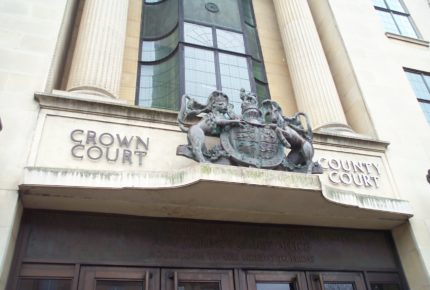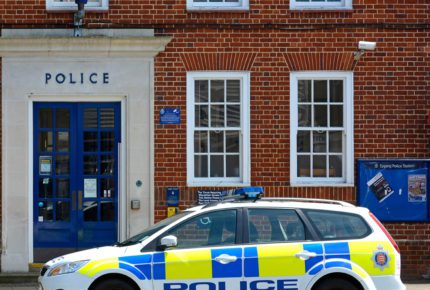

If you have been invited to a police interview under caution, or a benefits interview under caution, you are probably feeling apprehensive and wondering what is in store for you. This article provides advice about police interviews under caution. We also look at housing benefit fraud interviews and interviews under caution with the DWP. We explain what an interview under caution is, and the procedure that will be followed. We look at whether you are obliged to attend an interview under caution and what the consequences could be if you do not attend. We also consider the possible outcomes of an interview under caution, and what is likely to happen next.
What is a police interview under caution?
A police interview under caution is an interview by the police that is undertaken as a part of a criminal investigation. Before interviewing you, the interviewing officer should read you the caution, which is a warning that you are not obliged to answer the police’s questions, and that you are entitled to exercise your right to remain silent, however it may harm your defence if you fail to mention something in the interview, that you later seek to rely upon in court.
The interviewing officer should make sure you understand the caution before beginning the interview. You are entitled to have a lawyer present with you at the interview. The Police and Criminal Evidence Act Code C sets out the procedures that the police have to follow during the interview.
Interviews regarding suspected benefits fraud can also be undertaken under caution. If you have been invited to a housing benefit interview under caution, or a Department of Work and Pensions (DWP) interview under caution, you are also entitled to have legal representation at the interview.
Whether you are being interviewed by the police, your housing authority, or DWP, it is advisable to attend with a legal representative. Your legal representative will ensure that you understand your rights and that the procedure that the interviewers are following is lawful. They will also be able to offer you advice on your options. You will have a chance to meet with your legal representative before the interview starts.
Do I have to attend an interview under caution?
Whether you are obliged to attend an interview under caution depends on whether you have been arrested.
If you have not been arrested, the interview is voluntary. This means that you do not have to attend. However, if you refuse to attend the voluntary interview, this could lead to you being arrested so that the police can interview you.
On the other hand, if the police currently do not have sufficient evidence to justify arresting you, it is possible your refusal to attend could lead no further action being taken against you.
Whether or not to cooperate with the police’s investigation at this stage is a decision for you to make based on your perception of what evidence the police already have. This can be a nuanced balancing act, and a difficult judgement to make. In these instances, it is always better to consult a specialist criminal defence solicitor for advice on the specific facts of your case.
You should remember that because you are attending the police station voluntarily, you can stop the interview, or leave the police station at any time. You are not obliged to answer any of the police’s questions.
If you have been invited to a housing benefit fraud or DWP interview, you are not under any legal obligation to attend. However, if you fail to attend without providing legitimate reasons, this could lead to you being arrested or summoned to court.
If you have been arrested, and the interview takes place after arrest, you do not have a choice as to whether to attend the interview. However, you are not obliged to answer the police’s questions. You have the right to remain silent, though your silence may used against you by the prosecution if the case proceeds to court and you later rely on evidence which you could have mentioned at the time of the police interview, but chose not to disclose.
What is the difference between a compliance interview and an interview under caution?
A compliance interview and interview under caution are both types of interviews undertaken by DWP to find out information about a person who is receiving benefits and their circumstances. A compliance interview is a kind of ‘spot check.’ There is no suggestion that you have done something wrong; the interviewer may just be checking in on you to find out if your circumstances have changed. By contrast, you will only be invited to an interview under caution if you are suspected of fraud.
What are typical interview under caution questions?
It is difficult to provide a standard list of questions for an interview under caution because these will depend on the nature of the allegations that you are being interviewed about. However, the police are likely to want to know information about your whereabouts on the date of the alleged offence, and any alibis you have. In a benefits interview under caution, the questions are likely to centre around your address, who lives there, your financial circumstances, and any recent changes that you should have declared (such as getting a part time job).
A criminal defence solicitor can help advise you in respect of how best to approach the questioning. For example, there are areas of questioning where you should decline to cooperate, namely if it seems that the interviewer has very little evidence. Depending on the facts of your case, your solicitor might advise you that it would be better to do a ‘no comment’ interview, and submit a written statement setting out your answers. In other circumstances, it may seem that the interviewer has an important misconception which needs to be corrected in order to establish your innocence, and your solicitor might suggest it is in your interests to provide as much information as possible.
When will I get an interview under caution decision back?
If, after interviewing you, the police consider that there is sufficient evidence to charge you, they will either issue a charge sheet or they will approach the Crown Prosecution Service (CPS) for a charging decision. This could happen immediately after the interview, or within a few days.
If the police do not have sufficient evidence to charge you, they may release you without charge whilst they investigate further. For example, the police may obtain a warrant to search your home in order to seize items of relevance to the case. They may also interview you more than once under caution. How long it takes the police to make a charging decision depends on many factors, including the complexity of the case, the types of evidence involved, and the information that you choose to provide, or not to provide, in the interview.
For a housing benefit or DWP interview, it is likely that the authority that has conducted the interview will contact you afterwards to give you a decision on your case. The outcome of the interview under caution could involve a prosecution, or a fine, or it may involve no further action being taken.
Will an interview under caution show up on a DBS check?
A disclosure and barring service (DBS) check has replaced what was previously known as a CRB check (with CRB standing for Criminal Record Bureau). DBS checks are often run when you apply for new employment in a field involving vulnerable people (like children), to see if you have any criminal record.
Regardless of the outcome of a criminal investigation, the police will retain some records in respect of what has taken place. If you apply for a job in the future that requires a DBS check, the check may reveal information in respect of the police interview. The amount of police information that will show on the check depends on the type of employment you are seeking, and whether this requires a basic or enhanced check.
If you are convicted, the information relating to the conviction will be held on the Police National Computer (PNC). This record would show up on both a basic and an enhanced DBS check. If you are arrested, and the case is later discontinued, or if you are charged, and the case is later withdrawn or you are acquitted, this information will be captured in your local police service records. This information would only show up on an enhanced DBS check.
DBS checks only show police information. Therefore, unless the matter has been dealt with by the police, or has resulted in you receiving a criminal conviction, housing benefit and DWP interviews will not show up on DBS checks.
Where to get further help
If you have been invited to an interview under caution, you have the right to have legal representation at the interview. Instructing the right lawyer to undertake this vital task will have long-reaching consequences for your case, and perhaps even for your life. A good lawyer will ensure that the interviewer adheres to protocol, and will be able to give you robust advice on how best to approach the questioning. At Stuart Miller Solicitors, our team of solicitors are waiting to give you expert advice. Call us today for a no-obligation consultation.
OUR COMMITMENTS TO YOU:
-
Responsive
A legal expert will consult you within 24 hours of making an enquiry.
-
Empathetic
We will always treat you with trust, understanding and respect.
-
Specialised
Your case will be handled by an expert who specialises in your type of offence.
-
Proactive
We will take early action to end proceedings as soon as it is practically and legally possible to do so.
-
Engaged
You will be kept updated on your case at all times. We will provide a named contact available to answer your questions.
-
Caring
We understand this is a difficult and stressful time for you and your family. Our team will support you every step of the way.
-
Tenacious
We will never give up on your case. We fight tirelessly to get you the best possible outcome.

